
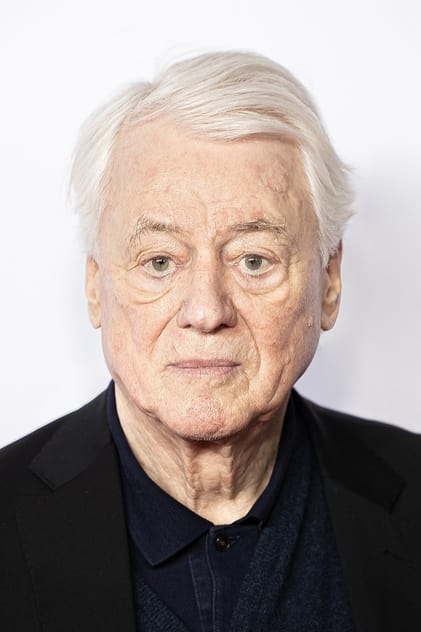
Alexander Kluge
Born: February 14, 1932
in Halberstadt-Germany
in Halberstadt-Germany
Alexander Kluge (born 14 February 1932) is a German author, philosopher, academic and film director.
Kluge became known in the 1960s and 1970s as one of the most influential representatives of the New German Cinema, which he helped to establish and develop in theory and practice.
Kluge became known in the 1960s and 1970s as one of the most influential representatives of the New German Cinema, which he helped to establish and develop in theory and practice.
Movies for Alexander Kluge...

Title: Come With Me to the Cinema – The Gregors
Character: Alexander Kluge
Released: September 1, 2022
Type: Movie
From the 1950s onwards, Erika and Ulrich Gregor brought countless film historical milestones to Berlin and shaped cinema discourse in post-war Germany. A look at the life and work of the couple without whom Arsenal and the Forum wouldn’t exist.

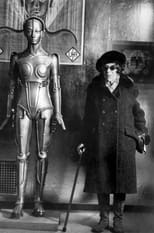
Title: A Life for Movies: Lotte Eisner
Character: Self (archive footage)
Released: November 1, 2020
Type: Movie
Born in Berlin in 1896, Lotte Eisner became famous for her passionate involvement in the world of both German and French cinema. In 1936, together with Henri Langlois, she founded the Cinémathèque Française with the goal of saving from destruction films, costumes, sets, posters, and other treasures of the 7th Art. A Jew exiled in Paris, she became a pillar of the capital's cultural scene, where she promoted German cinema.


Title: Wim Wenders, Desperado
Character: Self (archive footage)
Released: July 16, 2020
Type: Movie
"Wings Of Desire" and "Buena Vista Social Club", "Paris, Texas" and "The State Of Things": Wim Wenders is considered one of the pioneers of New German Cinema and one of the most important and influential representatives of contemporary cinema. With never before shown archive material and extraordinary encounters with companions and contemporary witnesses such as Francis Ford Coppola, Willem Dafoe, Andie MacDowell, Hanns Zischler, Patti Smith and Werner Herzog, this documentary provides unique insights into the life and work of one of the most multifaceted artists of our times. Renowned documentary filmmaker Eric Friedler ("It Must Schwing. The Blue Note Story") and his co-director Andreas Frege were given the exclusive opportunity to portray Wenders for this film. From Dusseldorf to Paris, and all the way to the desert of Texas, the film traces iconic locations and decisive moments in Wenders' work as director, producer, photographer and author.

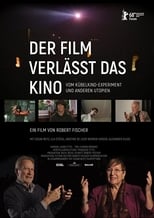
Title: Film Beyond Cinema: The Dumpster Kid Experiment and Other Utopias
Character: Self
Released: February 17, 2018
Type: Movie
For over half a century, the filmmaker Edgar Reitz, one of the signatories of the Oberhausen Manifesto and a pioneer of epic film narration, has explored, as a practitioner and theoretician, the rules and limits of cinema, which he always seeks to break and extend in new ways. One example of his tireless search and research are the Geschichten vom Kübelkind, which he co-directed with Ula Stöckl in 1969/70, 22 absurdly funny, subversive and anarchistic short films of different lengths, which consciously oppose all conventions, with incredible success. The films remain unrivalled in their Dadaistic inventiveness.


Title: Werner Nekes - Das Leben zwischen den Bildern
Character: Self
Released: November 9, 2017
Type: Movie
In conversations with his friends and colleagues, among them Bernd Upnmoor, Helmut Herbst, Alexander Kluge, Klaus Wyborny, Daniel Kothenschulte and Helge Schneider, Ulrike Pfeiffer takes us on a journey into the broad expanse of Nekes' cabinet of wonder and his cinematic works. At the same time, this documentary provides an insight into the history of experimental film in Germany.

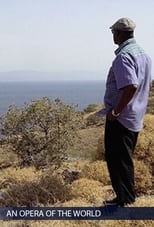
Title: An Opera of the World
Character: Himself
Released: June 10, 2017
Type: Movie
In An Opera of the World, Malian scholar and filmmaker Manthia Diawara reflects upon the refugee crisis and the relationship between Europe and Africa. The film revolves around a 2008 performance of Bintou Were, a Sahel Opera, by Zé Manel Fortes with a libretto by Koulsy Lamko, in Bamako, around which Diawara builds a story about migration, interweaving interviews with documentary and archival footage. In the course of the film, one crosses into the world of opera from the tradition of sung wisdoms and sentiments, which has characterized West African culture for centuries. If opera is often understood as an über-European art form—the Gesamtkunstwerk invoked by Richard Wagner—Diawara chooses to meditate on its movement or migration as opposed to its expansion or totality. What happens when opera moves south, from Europe to Africa, just as so many people from that continent are moving north, in search of better lives?


Title: Dancing with Pictures
Character: Himself
Released: March 6, 2017
Type: Movie
Anselm Kiefer is one of the most important painters of the present, Alexander Kluge's television interviews are legendary. Over several years, the two have met again and kept detailed discussions. With their youthful joy of associating, they talk about Kiefer's career and his way of working, about sources of inspiration and materials, about myths and of course history. Between the thematic blocks, Alexander Kluge switched cinematic miniatures, in which he spun common ideas and deepened individual aspects. A great dialogical artist portrait.

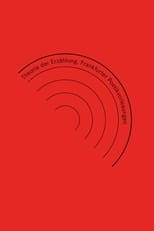
Title: Theorie der Erzählung
Character: Himself
Released: March 28, 2013
Type: Movie
Alexander Kluge's 2012 Frankfurt lectures on poetics.

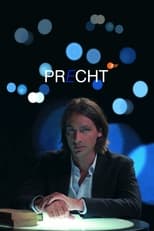
Title: Precht
Character: Self
Released: September 2, 2012
Type: TV
German talkshow hosted by Richard David Precht, a well known german philosopher and publisher, in which he speaks with a guest about a topic from culture, science, economy or politics in every episode

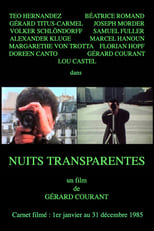
Title: Nuits transparentes
Released: April 14, 2011
Type: Movie
Strolling through France (Roanne, Nice and Carcassonne) with some excursions abroad (Munich, Montreal, New York).


Title: Anyone who dares will take the cold off their horse
Character: Self
Released: October 18, 2010
Type: Movie


Title: Counter Shot: Departure of the Filmmakers
Character: Self (uncredited)
Released: February 11, 2008
Type: Movie

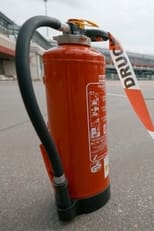




Title: Ich war Hitlers Bodyguard
Released: January 1, 2000
Type: Movie
A portrait of Manfred Pichota, played by Peter Berling, tells about the period in which he was the Führer's bodyguard.





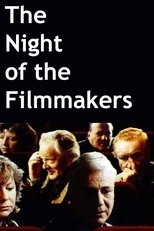
Title: The Night of the Filmmakers
Character: Self
Released: February 12, 1995
Type: Movie
A meditation on the first 100 years of German cinema, featuring an assembly of German filmmakers.


Title: Ballad Journal No. 9: “Cold Death Interrupts Love”
Released: January 1, 1995
Type: Movie
Since German Classicism, it has become customary to translate extreme, emotional events into a ballad, a popular form of song. This ‘Balladen Magazin’ brings Cossack lamentations, the horrors of the war in Chechnya, and the execution of the unfortunate Emperor Maximilian of Mexico, among others...


Title: SnowwhiteRosered
Character: Self
Released: October 24, 1991
Type: Movie
Documentary about the twin sister Jutta and Gisela Schmidt. In the late sixties the two women rebelled against middle class society as if they gave vent to a new kind of art. They became active in the underground communist party KPD and showed a heart-felt interest in the colour red, the aesthetics of the revolution. Soon, though, the twins quit their experiments in Germany. They left their husbands and went to Rome, where they met the fabulously wealthy Paul Getty III, and soon things got really out of hand.


Title: The Heart and the Legs
Character: Self
Released: March 1, 1989
Type: Movie
The heart of the legs.


Title: Reform Circus
Released: March 29, 1970
Type: Movie
A 1970 TV discussion with Alexander Kluge.

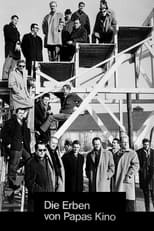
Title: Die Erben von Papas Kino
Released: June 30, 1968
Type: Movie
Documentary by Wilhelm Roth about the state of affairs of the Young German Cinema.

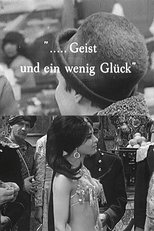
Title: ...Geist und ein wenig Glück
Character: Himself
Released: June 14, 1965
Type: Movie
Documentary about the current state of German cinema. Produced for German television.






Title: Bambi Awards
Character: Self
Released: January 1, 1948
Type: TV
The Bambi, often called the Bambi Award and stylised as BAMBI, is a German award presented annually by Hubert Burda Media to recognize excellence in international media and television to personalities in the media, arts, culture, sports, and other fields "with vision and creativity who affected and inspired the German public that year", both domestic and foreign. First held in 1948, it is the oldest media award in Germany. The trophy is named after Felix Salten's book Bambi, A Life in the Woods and its statuettes are in the shape of the novel's titular fawn character. They were originally made of porcelain until 1958, when the organizers switched to using gold, with the casting done by the art casting workshop of Ernst Strassacker in Süßen.

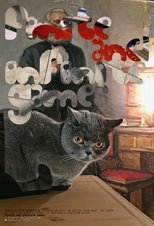
Title: Finite and Infinite Games
Character: Himself
Released: December 31, 1969
Type: Movie
Alexander Kluge, the legendary German theorist and writer, student under Adorno and Horkheimer, a lawyer for the Frankfurter Schule, and paramount filmmaker of the New German Cinema is being interviewed by Sarah Morris in the recently finished but not yet utilized architecture of the controversial philharmonic space in Hamburg designed by Herzog and De Neuron: the Elbphilharmonie.
